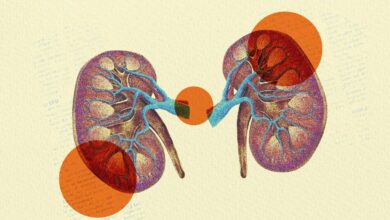
Kind Geeft Over Maar is Niet Ziek
Kind Geeft Over Maar is Niet Ziek can have various causes like food intolerance or food allergy. Some children may vomit as a reaction to certain products.
It is essential to watch for other symptoms and situations that may be contributing to the vomiting. Seeking medical advice is crucial if your child continues to vomit without any signs of illness. Consulting a healthcare provider is necessary if your child exhibits unusual behavior or symptoms, such as reduced fluid intake, dry mouth, lack of tears, confusion, or drowsiness.
Remember to stay vigilant and address any concerning issues promptly for your child’s well-being and health.
Common Causes Of Vomiting In Children
Vomiting is a common occurrence in children and can be caused by various factors. It is important for parents to understand these causes in order to provide the appropriate care and treatment for their child. Below are some of the common causes of vomiting in children:
Food Intolerance Or Allergy
Food intolerance or allergy is one of the most common reasons why children vomit. Some children may have a sensitivity or intolerance to certain foods, such as dairy products or gluten, which can trigger vomiting. It is important for parents to identify the specific food or ingredient that is causing the reaction and to avoid giving it to their child.
Gastrointestinal Infections
Gastrointestinal infections, such as viral gastroenteritis or stomach flu, can also cause vomiting in children. These infections are usually accompanied by other symptoms like diarrhea, stomach pain, and fever. It is important for parents to ensure their child stays hydrated during this time and to monitor their symptoms.
Metabolic Or Endocrine Disorders
Certain metabolic or endocrine disorders can cause vomiting in children. Examples include diabetes, thyroid disorders, or adrenal insufficiency. If a child is experiencing frequent or unexplained vomiting, it is important to consult with a healthcare professional to rule out any underlying medical conditions.
Cardiac Or Neurological Conditions
Cardiac or neurological conditions can also be a cause of vomiting in children. Conditions like migraines, epilepsy, or heart defects can result in vomiting as a symptom. If a child’s vomiting is accompanied by additional symptoms like severe headache, confusion, or difficulty breathing, immediate medical attention should be sought.
Dealing With Vomiting In Children
If your child is vomiting but not showing signs of illness, it could be a result of various factors. From abnormal eating behaviors to underlying conditions, it’s important to identify the cause. In the meantime, offer easily digestible foods and avoid dairy, fatty, and spicy foods until they feel better.
It is undoubtedly concerning when a child is dealing with vomiting. The potential causes behind it can be a matter of concern for any parent. When dealing with vomiting in children, there are several important steps to take to ensure their comfort and well-being.
Waiting Before Giving Solid Food
After a vomiting episode, it is essential to allow the stomach to settle before reintroducing solid foods to the child’s diet. Waiting a few hours before offering solid foods can help prevent further episodes of vomiting and discomfort.
Offering Easily Digestible Food
Once the child begins to feel better, it is advisable to offer easily digestible foods such as crackers or a toasted sandwich. These foods are gentle on the stomach and can help prevent further nausea and vomiting.
Avoiding Dairy or Fatty Foods
During a period of nausea and vomiting, it is best to avoid foods that are high in dairy or fat content as they can be more difficult for the stomach to process, potentially leading to further discomfort and vomiting.
Preventing Dehydration
It is crucial to ensure the child stays hydrated during and after a vomiting episode. Encouraging the child to take small sips of water or an oral rehydration solution can help prevent dehydration and aid in the recovery process. By implementing these measures, parents can help alleviate their child’s discomfort and support their recovery from vomiting episodes. Integrating these strategies into a child’s care routine can aid in reducing the likelihood of further episodes and help the child return to their regular activities in a healthy state.
When To Seek Medical Attention
If your child is experiencing symptoms of Kind Geeft Over Maar is Niet Ziek, it’s important to know when to seek medical attention. Certain signs indicate the need for immediate medical care.
Decreased Intake Of Fluids
- Not drinking enough liquid
- Signs of dehydration
Dry Mouth Or No Tears
- Lack of moisture in the mouth
- Inability to produce tears
Changes In Consciousness Or Behavior
- Altered mental state
- Unusual behavior

Credit: www.alamy.com
Other Possible Causes Of Vomiting
When a child vomits without being sick, it can be concerning. Kind Geeft Over Maar is Niet Ziek, commonly referred to as vomiting without being ill, can have various causes. Understanding these Other Possible Causes of Vomiting is crucial for proper management.
Overeating
Overeating can overwhelm a child’s digestive system, leading to vomiting.
Reflux
Reflux occurs when stomach contents flow back into the esophagus, causing discomfort and potential vomiting.
Stress
Stress can trigger vomiting in children, impacting their digestive health.
Preventing Vomiting In Children
Preventing vomiting in children who have no underlying illness is crucial. Encourage easy-to-digest foods like crackers or toast, and avoid dairy, fatty, spicy, or salty foods while they are still feeling nauseous.
Preventing Vomiting in Children Maintaining Good Hygiene Practices Good hygiene practices are crucial in preventing vomiting in children. Regular handwashing with soap and water before and after meals can prevent the spread of germs and reduce the risk of infections. It is important to teach children the importance of maintaining good hygiene, including proper coughing and sneezing etiquette to prevent the spread of germs.
Additionally, ensure that surfaces and objects that come into contact with food are regularly cleaned and sanitized to prevent contamination. Ensuring Proper Food Handling and Preparation Proper food handling and preparation play a significant role in preventing vomiting in children. It is essential to ensure that food is stored at the correct temperatures to prevent the growth of bacteria. Encourage the consumption of fresh fruits and vegetables, and ensure that meats are cooked thoroughly to kill any harmful bacteria.
Furthermore, it is important to check expiration dates and avoid consuming expired or contaminated food to prevent food poisoning. Managing Stress and Anxiety Managing stress and anxiety is vital in preventing vomiting in children. High levels of stress and anxiety can trigger nausea and vomiting in children. Encourage open communication with children to address any worries or fears they may have. Engage in relaxation activities such as deep breathing exercises, mindfulness, and physical exercise to help manage stress and anxiety. Creating a supportive and nurturing environment can significantly reduce the likelihood of vomiting due to stress and anxiety.

Credit: www.amazon.com

Credit: www.amazon.com
Conclusion
In light of the information shared, it is important for parents to be vigilant when their child experiences unexplained vomiting. Seeking medical advice for persistent vomiting and dehydration is crucial. Understanding potential causes and symptoms is key to providing appropriate care for the child’s well-being.
Remember to always consult with a healthcare professional for guidance and support.




